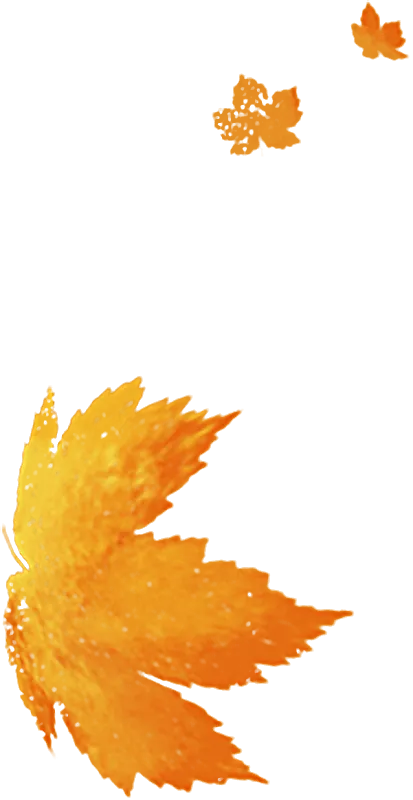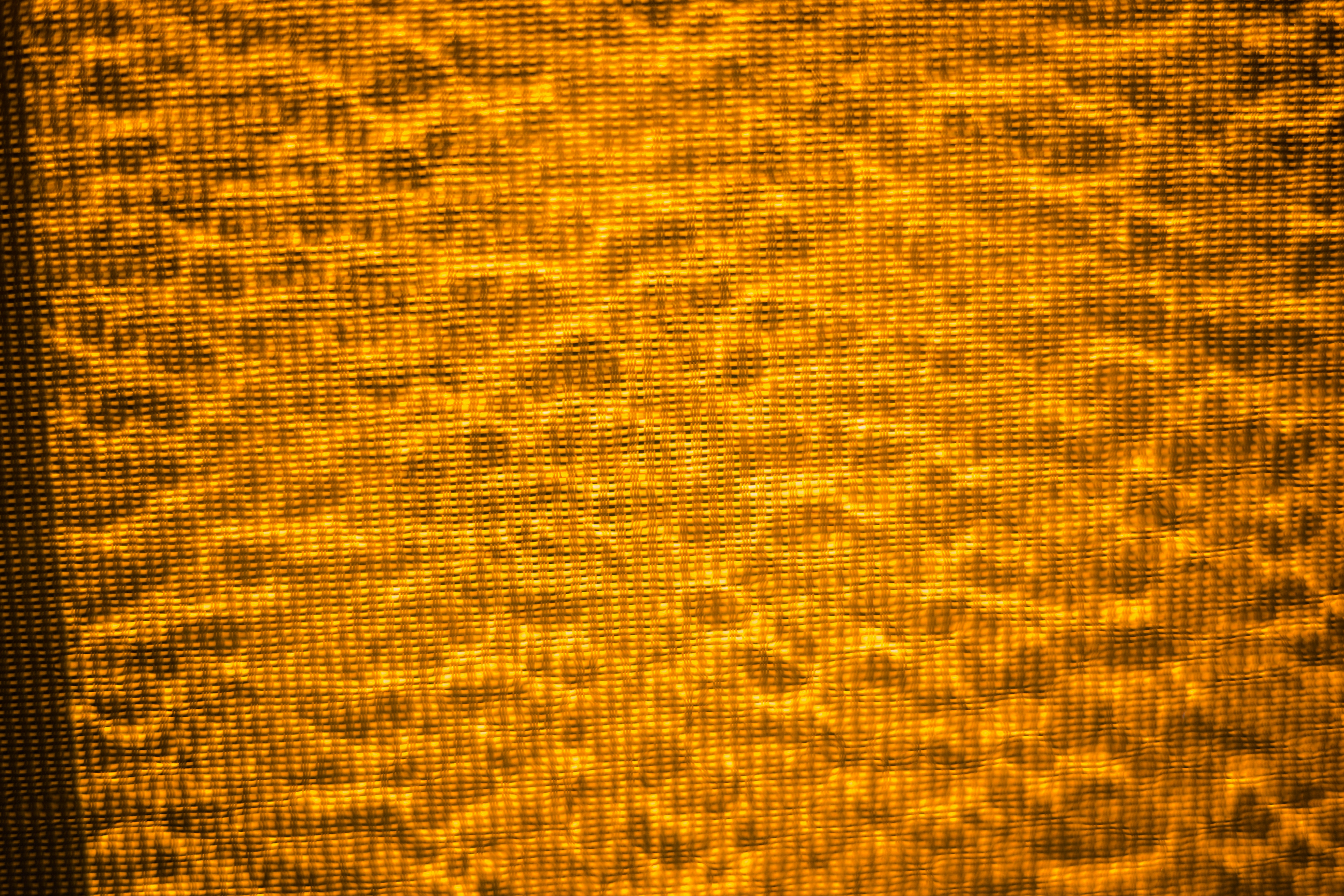Summary
7 March 2023
On this podcast episode Emma Dempsey interviews Founder Nathan Blair.
Nathan explains what somatics and embodied cognition means and they discuss somatic terms like neuroception, proprioception and interoception. Nathan goes into some of what the Diploma at the The Somatic School includes, and explores his own background and route into the world of Somatics.
"I'd love the school to become one of the go-to providers for somatic work... but the secret mission is that we might learn to love each other better. Because somatic work, and this kind of the attunement work and the resonance it has, has so much to do with human connection but also the skills that we train people in have so much to do with the sort of patient attentive compassionate presence that we can have with our own experience and with one another. ...What is love if not accepting all of someone in their wholeness? And so that's our secret mission." Nathan Blair
Transcript
Below is a transcript of their conversation.
0:01
[Music] so welcome Nathan I'm thrilled that
0:07
you're here I am I am honored honored to be invited thanks so much andwe had a conversation recently in my Mastermind
0:13
group and I know the people who were there really got so much out of itso I thought it'd be really nice to have you
0:18
would be great to have you on the podcast um to let a bigger audiencehear you and
0:23
to really kind of find out more about some mathematic coaching and thesomatic school and yeah just hear your voice
0:30
really would you like to start by saying a bit about who you are sure somy name
0:35
is Nathan Blair amongst other things including being a cheesecake[Music]
0:41
addicted I'm also the founder of uh coach Exchange store called thesomatic school so so magical really exists to
0:47
create opportunities for Attunement to ourselves to each other to theenvironment and in doing so embrace our
0:54
wholeness that's sort of what the school's all about one of thoseopportunities is a course that we run
1:00
specifically for people who are interested in developing coaching skillsbut that's called the accredited certificate and body oriented coaching
1:06
and that really helped a practitioners learn this because they need towork with the body's Intelligence online and
1:12
in person so it's a little bit about me and the school thank you um thebody's in Attunement tell me more
1:19
about that yeah yeah so the some people describe as the wisdom of thebody or the intelligence and there's a lovely
1:25
book called A guy called guy Claxton that's titled the intelligence Inthe Flesh I was I was quite like that as
1:31
well the whole idea behind somatic just to kind of break down the word alittle bit Soma is an ancient Greek word that
1:38
means the body in its aliveness not just the skin and bones but thewhole being and it's sort of in Greek it's it means
1:45
sort of an inspirited body the opposite of that would be necross whichwould be a body without Spirit or a corpse and so
1:51
Soma means more than just biology but what it means to be a human living
1:57
embodied being and from a somatic psychology perspective if you'reworking with someone's psychology but you're not
2:04
acknowledging the body in that you're only working with part of thepicture and the the more recent Sciences are
2:11
really supporting that so embody cognition has been around for a littlewhile now but that really sort of began
2:17
to look at and actually that's what guy claxton's book's all about ifyour listeners are interested in that but in
2:22
body cognition is all about how it is really an exploration of thisintelligence within our books that we
2:28
are we are shaped by life's experiences and the environment around usand and it
2:34
affects our how we operate as a human that's been taken a sort of stepfurther I believe in the field of interpersonal
2:41
neurobiology which really is painting this it's a so that's an area ofresearch that looks at 40 different
2:46
disciplines ranging from sociology to uh psychology Neuroscience biologyand
2:53
looking at where the findings coalesce and basically it's painting avery integrated picture of the human being so
2:59
so we are an integrated whole and that's relevant in coaching becausemodern psychology up until I would say
3:07
relatively recently except for in little pockets here and there hasfocused primarily on the cognitive reflective
3:13
mind so Insight logic mental meaning making and the body has always beenseen up until quite recently as the a taxi
3:20
for the brain you know and so there's a shift in our attitude towardsthe body it's not something that we have own but
3:28
maybe something that we are you know or even a process we can talk moreabout that later but that's the whole attitude
3:35
and the basic kind of underpinning idea behind somatic work
3:40
interesting I love that idea of like them the wisdom of the body and howyeah up to recently or you know recently
3:47
we've been thinking about the body as a taxi for the brain that's sointeresting and the funny thing is that I remember
3:53
this the last time we had a conversation that by just listening to Ibecome aware of my body like there's I can just I
4:00
don't know what it is it's almost like a feeling in my skin or somethingwhen I talk to you it's like things are kind of
4:06
waking up just by listening to you tell me what that is what might thatbe you know I think
4:12
that's I think that's wonderful I just love that as well because I thinkyou mentioned that last time and it's just it's great to see that organically
4:19
emerging you know that that sort of awareness of what might other beotherwise be outside of conscious
4:24
awareness for most of the day and I think that's quite common actuallyoftentimes people feel quite drawn to
4:30
somatics oftentimes people say they feel kind of called to it orintuitively it feels right I think that's not true for
4:37
everyone but for those that it resonates with I think it's maybe becauseit's it's nothing you don't already know yeah
4:43
many ways we are in body beings we have we exist as a body within a bodyand
4:49
sometimes simply bringing that that we exist as a body into ourawareness is
4:55
enough to be to get the ball rolling in terms of building up our whatAlan Fogle
5:01
describes as our embodied self-awareness so if conceptual self-awarenessis the
5:06
self thinking about itself or the self the person for example youridentity you know being a mother being a leader Etc
5:13
even your ideas of yourself in the future a vision of yourself in thefuture obviously very relevant and
5:18
absolutely you could say necessary within coaching depending on how youcoach embody self-awareness is the
5:24
self-experiencing itself so it's it's how who and how we are in thismoment it's how do we experience it it's at the
5:31
level of sensation emotion Etc so just becoming aware of this body youknow
5:36
already begins to get to build up that embody self-awareness because youcan only experience yourself here and now so
5:44
that itself experiencing itself what does that mean for and I know it'sthis
5:49
podcast is for coaches but I guess as coaches we're also humans so likewhat does that mean on a day-to-day basis if
5:56
you are an embodied being and you're tuning into that what does thatmean for you like walking to the shop what's
6:03
different for you it's interesting actually so in in the west and in theEast there are different views on the
6:08
embodiment and I think personally I sort of sits somewhere in the middleI think in in the west there's this idea a lot
6:14
of the time that embodiment is a sort of a Birthright it's our CentralState or something like that it's what we are and
6:20
in the in the East actually and it might be counted to some commonknowledge about the state in the East it's really
6:26
the attitude is that embodiment is cultivated so that we cultivateembodiment through practice over time
6:32
like I say I sort of sit somewhere in the middle so I think that youknow as I say you know just the ability to like in
6:39
a very basic level let's say you're walking to the shop and somebodyapproaches you and begins to talk to you
6:45
which was coined by uh Stephen porges as neurosception it's this ideathat our
6:50
nervous system is all scanning the environment for cues of safety cuesof Welcome or cues of warning and that's
6:56
our whole neurophysiology that's picking up on these this informationit's not it's not a rational thinking logical
7:03
consciously aware thing right so somebody's speaking with you and inthat moment you'll most likely get a sense of
7:11
whether I feel comfortable hanging around in that conversation or if I'dlike to move on or something like that
7:16
just to give a very basic example the ability to attend to that torecognize that in the first place attend to that
7:23
and then respond in resonance in other words actually um you know I'mI'm gonna exit this conversation now for example
7:29
in my mind that's already a form of you know that's already a form ofembodied intelligence and I think building up the
7:37
capacity to trust and listen I think that quality of listening to thebody acknowledging it and validating it
7:44
almost not not dismissing it as irrelevant it's just a sensation oh it'sjust a feeling in my gut oh it's just
7:50
you know it's it's actually that that capacity to listen in my mindthat's that's a form of embodiment you know
7:57
that's a form of embodied self-awareness and Alan Fogel wrote awonderful book called body sense that really makes a
8:03
real case for why cultivating our own body self-awareness is uh is agood idea
8:08
you know and yeah I love of that so that idea that like we all have thatbut it's
8:13
cultivating it and becoming more aware of it so like what is our kind ofwhat's happening in our body in any moment in
8:19
terms of that kind of safety reflex or what did you say with the twoswitches the neuroception and I suppose the
8:25
nervous system is scanning for cues of welcome and views of warningwelcome warning yeah so what can we do as humans
8:33
to cultivate that and what can we do as coaches when we're working withour clients so shall we start with the first
8:39
one um like what can we do as humans to really kind of harness that yeahokay so
8:45
I think just a basic intro when in the in the second module on uh on thecourse we train at semantics because we
8:51
actually introduced people to this notion of presence pie and uh Pi isan acronym for these three classes of
8:58
sensory perception so there's proprioception it's an awareness of thebody in space so it's an awareness that
9:05
if I look in this direction but my hand is over here I'm aware that myright
9:10
hand is sort of just above my shoulder and about you know half a meterout from one you know so it's it's that sort of
9:16
thing it's knowing where your right foot is in relation to your left hipEtc right so that's proprioception interception is awareness of information
9:24
from the inside so it could be a heartbeat be the quality of our breathfast uh slow deep shallow it could be
9:32
those classic kind of we people often talk about these gut feelings youknow that kind of tug in the gut that sort of
9:38
says oh yeah that's a bit of me that is you know that kind of like youknow I wanna I wanna move towards that all that
9:43
feeling that's says hmm something doesn't feel quite right about thisactually can we just take a moment and I mean that would be a I was going tosay
9:49
can we just take a moment pick pause here and just like that that takesquite a lot of skill actually to actually be
9:54
like I mean that's a practice and I you know that's something for mepersonally you know in relationship in
10:00
conversations that's a great thing to practice and it's never it's notalways it's easier said than done it's to be
10:05
able to say you know what I'm just noticing something and can we justpause here I just want to check in where it's you know that's a that's quite athing
10:10
to do so that's into reception extra reception is aware it's informationfrom the outside it's the five classic senses
10:17
so it's hearing it so hearing sight smell taste touch and so so acronymfor
10:24
that pie and um presence pie we call it because there's a quality ofpresencing that if you attend to each of those you
10:31
know it brings us to this moment and brings us to our embodies ofWellness our experience of ourselves in this moment so one thing that peoplecould do
10:38
is just remembering This Acronym pie and just you do need to know whateach of the letters stands for but
10:43
proprioception and how is my posture right now you know am I kind ofslumped over because we did something I think
10:50
didn't we on our on our last call of slumping over and sort of reallyslouching down and saying and mustering
10:57
as much enthusiasm as possible saying I'm having a fantastic day and itcomes out in a very incongruent because that's
11:02
that connection between a body mind it's just you know so how is ourposture is it is it supporting how we want to be
11:09
who we want to be in this moment you know um I'd like to to be in thisconversation and feel relaxed and
11:16
receptive so actually my posture might be more of this sort of positionI'm sitting back for those of you the
11:22
listeners who can't see me I'm sitting there kind of relaxing into mychair and I actually already noticed a deeper
11:27
breath comes with that it just emerged from me shifting my posture alittle so that's proprioception how's my posture
11:34
is my body comfortable you know In This Moment sometimes we can besitting on one leg you know it's it's gone
11:40
completely dead but we're not aware you know for example I'm just youknow the simple examples here intersection how am
11:47
I feeling inside am I hungry that one catches me out all the timenoticing I've seen that exactly conversations are
11:53
going swiftly I don't know what's going on oh I'm absolutely famishedbut I haven't actually become aware it's my
12:00
heart rate up and it's something I need to do differently right now tokind of chill a little bit regulate my nervous
12:06
system a bit you know um what's what's going on that's having my heartbeat so fast or is it just excitement and can I
12:12
enjoy that feeling of slightly heightened arousal in the system and thenextra reception and this is an
12:18
important one I think in many levels so what's happening in myenvironment right now I mean the extra section helps you
12:23
you know tune into your visual sense and notice the person in front ofyou and become more aware of them and more tuned
12:28
to them and what's happening with that person you're interacting withbut also actually it has a very important function of something that's known in
12:35
particularly the trauma work of orientation so as I bring my awarenessout to my environment through any of the
12:41
senses actually it sends signals to the brainstem of the very ordinaryHere and Now where typically speaking you know
12:48
unless there is an imminent danger typically speaking we're safe we arecomfortable it's a familiar environment
12:54
and all is okay and actually that orientation to our environmentparticularly through our visual senses
13:00
are particularly neutral one actually has the effect of really downregulating the nervous system it can help really
13:06
settle us um and it's a good thing to just do even throughout the dayand just allow the is just to take a little
13:12
journey through the space you're in noticing how the world is contactingyou for your visual sense so that's that's on the personal level so on a daily
13:19
basis like thinking about the fact that we're embodied beings whatyou're saying is like just really tuning into that not
13:25
just that but everything that you've said and just kind of trying tocultivate that self-awareness of like
13:30
what's good like so for me a lot of the time like oh what am I thinkingin this moment but actually what is the wisdom
13:36
that's going on in my body as well what am I feeling in this momentWhat's Happening physically and just being really aware of that so as coacheswhat
13:43
happens is when you go and see a thematic coach what's different greatyeah it's there's um I often describe
13:50
this uh first of all I just want to pick up on something you saidearlier which was you know you have that thought of like oh what am I thinkingin this
13:56
moment and then you're saying oh now you're exploring in thisconversation if it's another Avenue of information that comes through the bodyand these two
14:02
things in my mind and this is the attitude of somatic psychologists wellthey're intrinsically linked yeah so
14:08
actually you know as we become aware of what's happening in the body thethoughts meaning you know associations
14:14
images they come with that you know and that can be very insightful and
14:20
oftentimes working in somatics is working with that which is not alreadyknown and you know even if you look at
14:26
the topic of limiting beliefs you know limiting beliefs many people areaware of their limiting beliefs they know what
14:33
those beliefs are nonetheless they know that they're limiting for thembut they know of the belief I know that I have
14:39
this belief that I'm not a high earner or I know that I have this beliefthat I I'm not good around with people or
14:46
something like that you know but working with the body oftentimes we'reworking with these implicit beliefs these beliefs that are totally outside of
14:52
conscious awareness they are they sort of are held within the cells thesinews the muscles of our body the structure
14:59
the musculosphere it's like it's like the way that we are shaped throughlife's experiences you know if I have a
15:05
belief that here's an example like if I have a belief that people don'thave time for me I might speak very fast well
15:11
that's an interesting non-verbal thing yeah it's verbal it's it's a sortof a somatic manifestation it's speaking very
15:17
fast because I believe that people don't understand me and it's asomatic case we can work with things like that or for example if uh ifsomeone's slumped over
15:24
who knows what that might that belief might be about but we can explorethat I remember talking about this before
15:31
with you and that idea that like I recognize through um being aroundsomebody who I I suppose
15:38
I felt a bit stressed around and I knew that cognitively that I feltlike that and I was kind of working on my thought
15:43
password but actually recognizing that every time I was around thatperson I was like completely braced and I like
15:48
felt it in my body I remember saying that to you and like actuallytrying to like like was it that one came first or
15:54
which came first I don't know or do they come at the same time yeah andI think well I think that inquiry that you're in
16:01
right now like that question of which came first like the I guess inmany ways that where did it come from and why in
16:08
my mind when I'm working with clients it's not nearly as important asjust bringing that curious interest to the
16:15
experience as it's happening or as we can connect with it because whatwe find is just the bringing our Attention our
16:23
awareness to it even for a moment often brings that Insight so itdoesn't come
16:28
from you know I think a lot of time when people think about working thebody think about body language is a good example they think about that that's a
16:34
crossed arms and people like closed off you know or I'm you know I'm notbeing open to a person or the idea or whatever
16:41
it might be although some people might think that I don't know thatthat's um like looking away eye contact means you
16:48
know maybe not interested that's ascribing these sort of prescriptive orkind of these fixed ideas about what x x
16:56
means why you know but actually um in the somatic modalities that we
17:01
draw on at somatic School we're much more interested in okay as apractitioner I don't know I don't know
17:07
what your crossed arms mean in a true Spirit of coaching what does thatmean for you and so the question then becomes
17:15
so you said you gave an example of like oh I noticed when I asked youthat question you crossed your arms you know
17:20
for example that's you know you gave a similar kind of vignette of whatit might sound like in a coaching session so as we bring awareness to thatcrossed
17:28
arms clients clients can tune in and be like what is this what is thisfor me
17:34
not you know rather than saying oh you seem a little closed about thisor
17:39
something that's a different approach so this kind of circles right backto your question which was yeah within coaching
17:45
there are these kind of two you know three or four classic questionsthat coaches will often ask when they're
17:50
wanting to bring the body in so one of them is the one that youdescribed it's like you know I noticed when I asked you
17:57
that question you crossed your arms I'm curious what was happening foryou there I noticed that as you were talking about your boss you were you hadto hand over
18:03
your mouth I'm wondering I'm curious about that I'm wondering what'swhat's going on the thing about a question like
18:08
this is that gestures body language however you want to describe itthese non-verbal Communications they're
18:14
typically unconscious like they have like while I'm I'm moving my handsfor those of your listeners who can't see me
18:20
right now I'm I'm gesturing but I'm not choosing to gesture I'm notplanning out my gestures I'm not doing it consciously
18:27
or deliberately either completely unintendent like they're justhappening and oftentimes when we ask a question
18:33
like that you know oh when this happened you did that what was happeningto you there we're inviting a client to reflect
18:40
on something that they weren't aware of doing in the first place and thethe slight the the attitude we have towards
18:46
that is that the reliability of the answer you get to a question likethat
18:52
is questionable because we are meaning making machines and so when wereflect
18:57
on something that we didn't know we were doing we actually don't evenknow that we did it most of the time because a coach will say oh you did thisand they
19:03
go did I okay well yeah oh it was probably this and they'll have their
19:08
best guess so are we really getting the wisdom of the body there is thatreally
19:14
connecting with the body's intelligence oh is it more of the same is itis it feeling ourselves experiencing ourselves
19:19
or are we thinking about feeling are we thinking about what across ourmoment so the skills that we train coaches in the
19:26
skills that I will use with my clients are skills that help our clientsbecome aware of their experience as it's
19:32
happening so become aware of the Cross arms and be able to self-studyand get curious about this posture this
19:39
embodiment this particular gesture or microaction what does that notmean to me how does it feel as I'm doing this
19:47
what am I noticing so one of the ways that we might do that just to giveyour your listeners a little something is you
19:53
know a lot of people are aware of mirroring in NLP mirroring is oftenused to uh to influence you know there's this
20:00
uh I think they call it Pace I can't remember what the term is it's sortof like I can't remember but it's it's used
20:06
to to sort of match someone and then speak into sort of influence themtypically hopefully positively influence
20:13
but we can also use mirroring as a way to sort of being bring awarenessto are
20:18
you even on purpose so right so so I mirrored a little
20:24
something Emma was doing with her knuckle against her face and as Imirror
20:29
you I didn't say anything about it but you became aware of yourselfdoing that
20:34
very powerful way to use mirroring because it can help without naming itwhich can sometimes leave client's
20:40
feeling slightly if we when we name something they their attention goesto listening to what you're saying more
20:48
than it goes to the action that they're doing but if you mirror theirawareness immediately comes because there's
20:53
something about mirroring as I mirror your mirror neurons fire up whichmeans that parts of your brain and body that
21:00
are associated with that movement light up so you become more aware ofwhat you're doing in that moment and then you
21:05
can get curious together about oh what is that what is that so it bringsour clients awareness to that so that's one
21:11
of the one of the three kind of classic questions and one of thealternatives to that that we put it personally would
21:16
think is more effective ways of kind of accessing that body'sintelligence I am
21:22
curious about like what has led you here Nathan like with the I I loveyour
21:28
energy around this I love that you've created a school around somethingthat you're really passionate about and we'll
21:33
talk about the somatic school and I'm aware of time as well but justcurious like what led you here to this point
21:40
it's quite a long journey so I'm keeping it okay well I'd say but it'sreally
21:46
interesting as I reflect back on my life I can really see the threadsyou know or the thread I should say but I can really
21:52
see the way that things have kind of led me to where I am today but youknow as a teenager I was very very sensitive very
21:59
aware of people's emotions non-verbal facial expressions and things likethat I often be described as oversensitive
22:06
you know because I would not just notice these things but I'd respond tothem you know I'd be maybe in reactive ways quite
22:13
a lot of the times well but around that time I was also diagnosed withADHD and uh attention deficit disorder for those
22:18
who don't know add something alternative and have opinions about thattoday
22:24
generally speaking because I actually in my later on in my mid-20s Idropped the label completely and I don't take any
22:30
medication these days because partly that's because I learned I read awonderful book with the mindfulness prescription for ADHD and it helped me
22:36
begin to connect with my senses in a meaningful way like it consciouslydeliberately not just become aware not
22:42
just be sensitive but use my sensitivity as a means of regulating myemotions
22:48
becoming present at the moment you know when I'm kind of spinning awayjust centering myself you know whatever that
22:55
might be and I was always very interested in this I remember I wasworking at leadership development consultancy for a while and while I was
23:02
there that was very some people might describe that it's quite heady butwhile I was there I was reading this book I
23:08
mentioned earlier actually intelligence In the Flesh and I was justsoaking it up so I knew that the field of somatics
23:14
which I didn't know the name for it at the time actually but I knew thatthat this was something that I felt very cool to I actually went for a periodof time
23:21
I was working looking at an organization that was all about consciousrelating and sexuality and that you can't separate sexuality in the body it was
23:28
there that I really had a an embodied experience of how connected we areat a visceral level and they were very hot on
23:35
listening to the body for example in conversations even in team meetingsthey would some people sometimes someone
23:41
would say oh I just felt like this Clint like just from this clench inmy chest you know as you said that like that
23:47
feels totally off to me you know and that's that's what that's how theywould communicate with each other and uh there
23:55
was a lot of projecting that happened there as well there was a shadowside to that but there was but it was
24:00
fascinating to hear that that come into dialogue you know everydayconversation that you know acknowledging the body in
24:07
that way but yeah I I really wanted to work in this way as a coach atthe time I just couldn't find that's a place to
24:14
you know somewhere to develop that skill set yeah and um and so I turnedto the
24:19
body psychotherapies I trained in Folk focusing in hakomi to both ofthose approaches I absolutely adore and they
24:26
they have their Roots sort of in in some of the wisdom Traditions likegaoism and Buddhism but also very much Carl Rogers
24:33
work you know about if anyone's read early Carl Rogers books like I'mbecoming a person it mentions Eugene
24:39
gentleman in that who created the focusing approach they work veryclosely together and so already you can see that
24:45
this it's interesting because Carl Rogers certainly the the founderoften just describes as the founder of the
24:51
human potential movement and the humanistic tradition um within thehelping professions and Carl Rogers
24:56
massively influenced Eugene German who create the focusing approach andalready there's this amazing kind of picture
25:02
that comes together of these body psychotherapies and then the kind ofthe the roots of coaching and though I've
25:09
only become really aware of just how interconnected this web is morerecently in my own life it wasn't it's not
25:15
surprising when I look back at how these the world of coaching in a veryperson-centric my coaching has always
25:21
been very personal and this world of process oriented bodypsychotherapies work kind of they're
25:28
totally interconnected and when they're brought together in body oreducation that's why we can bring these together
25:34
they they it just makes sense they're totally complementary and thensuddenly the body becomes a very real a
25:41
meaningful Avenue for exploration within the coaching context so
25:46
um my own training kind of in body Psychotherapy actually from sort oflemony line full circle to coaching and
25:51
then these two worlds came together as as you know it now with thesomatic school yeah I think that's that's
25:57
probably my that's probably how I ended up here in part it's sointeresting it's so interesting when we look back on our
26:03
lives and go actually like the pads we took you know they did they LEDhere or we can see more like from looking back
26:10
but the connections that were there that led us to where we are and whatis your mission with the somatic school
26:16
that's such a big question it's funny because I I feel very very
26:21
actually daily I feel kind of very humbled by the sematics field becauseit really feels like it has a life of its
26:27
own and I'm just enjoying the ride I feel like I'm a faster on thissomatic
26:32
School journey in many ways My Hope Is that those the amazing peoplethat we have you know part of the somatic school
26:39
team it's um Craig Rachel and Cecilia Ramon you know but all of thesethe
26:45
people who are working in at the somatic School My Hope Is that theirVisions what this could be will see this the
26:52
school just unfold in wonderful ways that we haven't yet considered umpersonally I think I always say that
26:59
we have a secret mission at the somatic school so we have the kind ofpublic-facing one which is all about you
27:04
know working with the body's Intelligence online and in person learningcoaching skills to to enable you to do so and you know in many ways I
27:11
would love to be you know one of the you know I'd love the school tobecome one of the go-to providers for somatic work
27:18
within the coaching but the secret mission is that we might might learnto love each other better because somatic
27:24
work and this kind of the Attunement work and the resonance it has somuch to
27:30
do with human connection but also the skills that we train people inhave so much to do with the sort of patient
27:37
attentive compassionate presence that we can have with our ownexperience and with one another and to embrick to be
27:45
all embracing you know of whatever somebody whatever comes up forsomeone that we can be a yes and to that and we
27:51
can Embrace that too and you know what is love if not accepting all of someone you know in their wholeness you know and
27:58
so that's a kind of secret mission and yeah but not such a secret now I've
28:04
shared a review I love that secret mission and I just I've loved talking to you today and I think people are
28:09
listening will get so much from this episode um if people want to find you where will they find you so I mean the obvious
28:16
place if when people want to find most things is to Google it so you can type into to Google the somatic School you
28:21
can go to www.thesomaticschool.com the best are you checking us
28:28
I'm taking this event actually the best way to learn more about this
28:35
American school well actually learn more about the field of somatics broadly speaking but also the somatic school and how we train people to become
28:42
body-orange coaches if should they want to be is to come along to our free online introduction to body or into
28:47
coaching and the next one which I was checking is on the 29th of June which is next Tuesday okay so this podcast will
28:54
be out by then I'm not that organized but if people want to find out about those information data they listed on
29:00
the website they are datia and how often are they but they happen once every two weeks or so okay yeah yeah they're quite
29:07
just very frequent so do you want to say a bit about what they are what people come along and is that you yeah so I
29:13
host that event first half the event is all about the field of somatics and the body oriented approach broadly speaking
29:18
we look at what is somatics what is body oriented coaching or what is the body oriented approach and some of the
29:24
shoulders we stand on where it came from why somatics why now you know what is it about the world we live in today that
29:30
has this feel relevant to so many people because increasingly it is it does feel
29:35
that way and then we take a break and when we come back we talk about we introduce people to the semantic School
29:40
the flagship program that we train here the accredited certificate and body into coaching go into detail about the course
29:46
content structure and how you can enroll should you want to and then people can express an interest if they're
29:51
interested in speaking again but it's a very easy you know no commitment at the event so it's a nice it's entirely free
29:58
to attend it's a great place to get your questions answered hi thank you so much Nathan for this conversation is there
30:04
anything that you're taking from this conversation today I am taking well it's
30:09
been a joy and I guess one of the things is this classic isn't it so one of the things at the school we one of our uh we
30:16
call them intentions it's one of them is your reception makes me brilliant okay so that's that's how that's the name of
30:22
it you know another one is you know if it stops being a simple stop you know but one of them is your reception makes
30:27
me brilliant and what that's all about is the way that we receive one another has the power to either build someone up
30:34
you know evoke genius in another or diminish that yeah and you Emma are so
30:40
receptive so wonderably receptive you're so responsive and so if I've been any
30:45
form of good in whatever way that I mean on this podcast I would say it's thanks to you because well if the quality of
30:53
your exception wasn't such then my best would never come out you know that's we really believe in that that the impact
30:58
we have on one another in that way so I'm I'm really taking I'm feeling very nourished and it's been generative and I think that's that's thanks to the
31:05
connection that you've facilitated here in this conversation thank you I love that it's a theory but I also yeah your
31:11
words are kind and I'm grateful and it's been a pleasure um so thank you so much Nathan and maybe
31:18
we could continue this conversation and another time it would be a pleasure


















.jpg)





